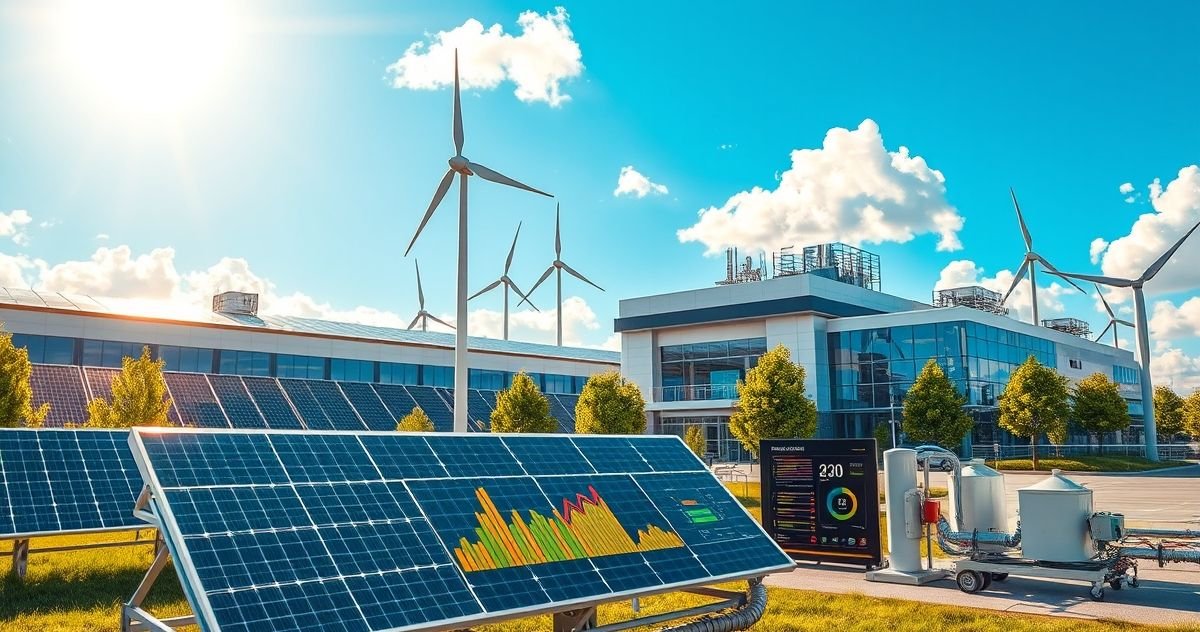Understanding On-Site Renewable Energy Credits
On-Site Renewable Energy Credits (OSRECs) are an incentive mechanism to encourage the generation of renewable energy within a specific location. They represent a verifiable unit of renewable energy production, often measured in kilowatt-hours (kWh), and primarily serve to offset the usage of non-renewable energy sources, thus reducing the carbon footprint of businesses and establishments.
What Are On-Site Renewable Energy Credits?
OSRECs essentially allow businesses to receive credit for producing renewable energy, such as solar, wind, or biomass, directly at their site. These credits can be sold, traded, or transferred to facilitate energy investments and boost revenues. They are a vital component in achieving sustainability goals and compliance with green energy mandates.
Primary Purpose of On-Site Renewable Energy Credits
The primary purpose of OSRECs is twofold: to stimulate the private sector to invest in and generate renewable energy, and to provide a mechanism for companies to demonstrate their commitment to environmental stewardship. By adopting on-site renewable installations, organizations can reduce their energy costs, decrease their dependency on fossil fuels, and promote a cleaner, healthier environment.
Key Features and Components
- Measurement Unit: OSRECs are typically quantified in kilowatt-hours (kWh), symbolizing the amount of energy generated from renewable sources.
- Trade and Transfer: These credits can be sold or traded in regional and national energy markets, providing financial benefits to producers.
- Regulatory Compliance: OSRECs can help businesses meet mandatory renewable energy standards or voluntary targets set by stakeholders.
- Enhanced Brand Image: Companies leveraging OSRECs can improve their public image by showcasing their commitment to sustainable energy practices.
Filing and Compliance Requirements
Businesses seeking to capitalize on OSRECs must adhere to specific regulatory and compliance guidelines. The requirements often vary based on the region and the governing energy body but generally include:
- Verification Procedures: To ensure authenticity, companies must provide verifiable documentation proving that energy was generated on-site and met all regulatory criteria.
- Registration with Energy Authorities: Companies typically need to register with appropriate regional or national energy registries to authenticate and trade OSRECs.
- Regular Reporting: Accurate and periodic reporting of energy production and usage is imperative for compliance and to maintain eligibility for receiving energy credits.
Penalties and Consequences for Non-Compliance
Failure to comply with OSREC regulations can lead to several consequences, including:
- Financial Penalties: Non-compliance may result in fines or forfeiture of credits, affecting the financial incentives tied to OSRECs.
- Loss of Credibility: Companies that fail to maintain compliance may damage their reputation and trustworthiness regarding their sustainability commitments.
- Regulatory Challenges: Persistent compliance issues could attract regulatory scrutiny, audits, or legal implications from energy governing bodies.
Importance and Significance in Tax Resolution and Financial Compliance
OSRECs play a crucial role not only in promoting renewable energy but also in contributing to the broader goals of tax resolution and financial compliance. By integrating renewable energy credits into their business models, companies can:
- Optimize Tax Benefits: In many jurisdictions, the production of on-site renewable energy and the associated credits may be eligible for various tax deductions, credits, or other financial incentives, leading to lowered tax liabilities.
- Support Sustainability Goals: Leveraging OSRECs demonstrates a proactive approach to sustainability, which is increasingly demanded by consumers, investors, and regulatory bodies alike.
- Enhance Financial Stability: Reduced energy costs and additional revenue streams from selling or trading OSRECs contribute to a stronger financial standing.
- Align with Corporate Social Responsibility (CSR): By pursuing renewable energy initiatives, companies align themselves with broader environmental and social responsibility goals, satisfying stakeholders’ and customers’ growing demands for green practices.
In conclusion, On-Site Renewable Energy Credits are integral to modern business strategies aimed at reducing carbon emissions, achieving energy independence, and fulfilling corporate social responsibility. Their strategic integration not only aids in financial optimization but also bolsters a company’s reputation as a leader in sustainability and innovation.

